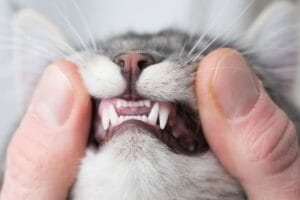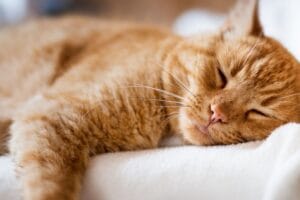Best Homemade Foods for Cats With Liver Disease
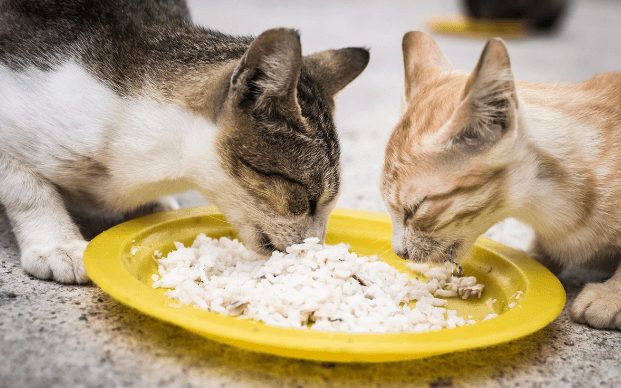
Liver disease is a serious condition that can affect cats of all ages and breeds. While there are several treatment options available, including medication and a change in diet, many cat owners prefer to make their cat’s food at home to ensure that their feline friend is getting the best possible nutrition. In this article, we’ll be discussing some of the best homemade foods for cats with liver disease.
Understanding Liver Disease and its Effects on Cats:
Before we delve into homemade food options, it’s essential to understand liver disease and how it affects cats. You can also check out our article on Home Treatment for Cats with Liver Disease.
The liver is responsible for several critical functions, including filtering toxins from the blood, producing bile, and aiding in digestion. Liver disease can occur due to several reasons, including infection, genetics, and diet. Some common symptoms of liver disease in cats include loss of appetite, vomiting, diarrhea, and lethargy.
Liver disease in cats can be a serious condition and may require immediate veterinary attention. When a cat is diagnosed with liver disease, it is crucial to make dietary changes to support the liver’s function and prevent further damage. The liver’s ability to break down and metabolize nutrients is impaired in cats with liver disease, so it is essential to feed them a diet that is easy to digest and low in fat.
Benefits of a Homemade Diet
There are several benefits to feeding your cat with liver disease a homemade diet. Here are some of the most important ones:
- Control over Ingredients: When you make your cat’s food, you have complete control over the ingredients that go into it. This means you can avoid additives, fillers, and preservatives that may aggravate your cat’s liver disease.
- Customization: Homemade food allows you to tailor your cat’s diet to their specific needs. For cats with liver disease, this means reducing the amount of protein and fat in their diet while increasing their intake of vitamins and minerals.
- Improved Digestion: Since homemade cat food is made from fresh, whole foods, it is easier for your cat to digest. This can be especially beneficial for cats with liver disease, as their liver may be struggling to break down and process certain nutrients.
- Better Nutrient Absorption: Homemade cat food is often more nutrient-dense than commercial cat food. This means your cat is more likely to absorb and utilize the nutrients they need to support their liver function and overall health.
- Increased Hydration: Many homemade cat food recipes contain a higher moisture content than commercial cat food. This can help to keep your cat hydrated and support their kidney and liver function.
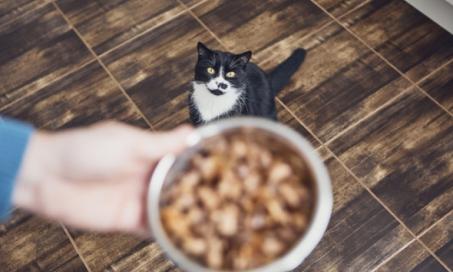
Best Homemade food for Cats with Liver Disease
A homemade diet for cats with liver disease can be beneficial, as it allows you to control the ingredients and ensure that your cat is getting the nutrients they need. However, it is important to note that not all homemade foods are suitable for cats with liver disease. Foods that are very high in fat or protein can be difficult for the liver to metabolize and can cause further damage.
Homemade diets should also be nutritionally balanced and contain appropriate levels of vitamins, minerals, and essential fatty acids. With the right ingredients and guidance from your veterinarian, homemade foods can be a safe and effective way to support your cat’s liver health.
We will now discuss some popular homemade foods for cats, along with a list of ingredients and instructions and how to prepare each one of them.
Chicken and Brown Rice
Chicken and brown rice are a great combination for cats with liver disease as it is easy to digest, and provides the necessary protein and carbohydrates needed to support their health. Here is a more detailed recipe on how to make this homemade food:
Ingredients:
- 1 pound boneless chicken breast
- 1 cup brown rice
- 2 cups of water
Instructions:
- Rinse the brown rice and soak it in water for at least 30 minutes.
- In a large pot, bring 2 cups of water to boil.
- Add the soaked brown rice to the pot and bring it to a simmer.
- Cover the pot with a lid and let the rice cook for 18-20 minutes.
- Meanwhile, wash the chicken breast and remove any skin and visible fat.
- Cut the chicken breast into small pieces.
- In a separate pot, bring water to boil and add the chicken pieces to it.
- Reduce the heat to low and let the chicken simmer for 10-12 minutes.
- Once the chicken is cooked, remove it from the pot and let it cool.
- Once the rice and chicken are both cooled, mix them together in a bowl.
- Serve the chicken and brown rice mixture to your cat.
It’s important to note that this recipe should only be fed to cats in moderation, as too much protein can be harmful to cats with liver disease.
Sweet potato and salmon
Sweet potato and salmon is an excellent homemade food for cats with liver disease because it provides a balance of nutrients that can help support liver function. Here’s what you need and how to make it:
Ingredients:
- 1 small sweet potato
- 1/4 pound of salmon
- 1 tablespoon of olive oil
Instructions:
- Preheat your oven to 400 degrees Fahrenheit.
- Wash and dry the sweet potato, then prick it with a fork several times.
- Place the sweet potato on a baking sheet and bake in the oven for 45-50 minutes or until it’s soft.
- While the sweet potato is baking, wash the salmon and remove any bones.
- Rub the salmon with olive oil and place it on a separate baking sheet.
- Bake the salmon in the oven for 10-12 minutes or until it’s cooked through.
- Remove both the sweet potato and salmon from the oven and allow them to cool for a few minutes.
- Remove the skin from the salmon and discard it.
- Mash the sweet potato and salmon together until it’s thoroughly combined.
- Serve the sweet potato and salmon mixture to your cat.
It’s important to note that you should never serve your cat salmon that’s been seasoned with salt or other spices. Plain, unseasoned salmon is the best option for cats. Also, be sure to remove all the bones from the salmon before serving it to your cat, as bones can be dangerous for cats to consume.
Cottage Cheese and Turkey
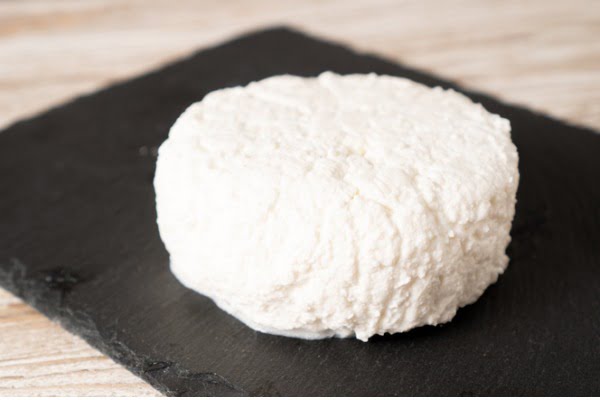
Low-fat cottage cheese and turkey is a great option for cats with liver disease. Turkey is an excellent source of protein, while cottage cheese is low in fat and high in calcium, which can help maintain healthy bones. Here’s how to prepare this homemade meal:
Ingredients:
- 1 lb ground turkey
- 1 cup low-fat cottage cheese
Instructions:
- Cook the ground turkey in a non-stick pan over medium heat until it is fully cooked.
- Drain any excess fat and allow the turkey to cool.
- In a bowl, mix the cooked turkey with low-fat cottage cheese.
- Serve the mixture in a shallow dish.
It’s important to note that this recipe should only be fed to cats in moderation, as too much protein can be harmful to cats with liver disease. Additionally, it’s important to ensure that the turkey is cooked thoroughly and that all bones have been removed, as cooked bones can splinter and cause internal damage to cats.
Also keep in mind, that cats that are lactose-intolerant might not be able to consume cottage-cheese safely. Although, cottage-cheese has less lactose than milk, so some cats with (less severe) lactose-intolerance should be able to consume it.
Tuna and Quinoa

A nutritious and delicious homemade meal for cats with liver disease. This recipe is packed with protein and fiber, which can support liver function and promote overall health in cats.
Ingredients:
- 1 cup cooked quinoa
- 1 can of tuna in water (drained)
- 1 tablespoon olive oil
Instructions:
- Cook quinoa according to package instructions and set aside to cool.
- Drain the canned tuna and flake it into a bowl.
- Add the cooled quinoa to the bowl of tuna and mix well.
- Add 1 tablespoon of olive oil and mix again.
- Serve immediately or store in the refrigerator for up to 3 days.
Note: This recipe can be modified by substituting the tuna with other types of fish, such as salmon or mackerel. You can also add some vegetables, such as steamed broccoli or carrots, to make it more nutritious. Be sure to avoid using any ingredients that are toxic to cats, such as onions or garlic.
Beef and Green Beans
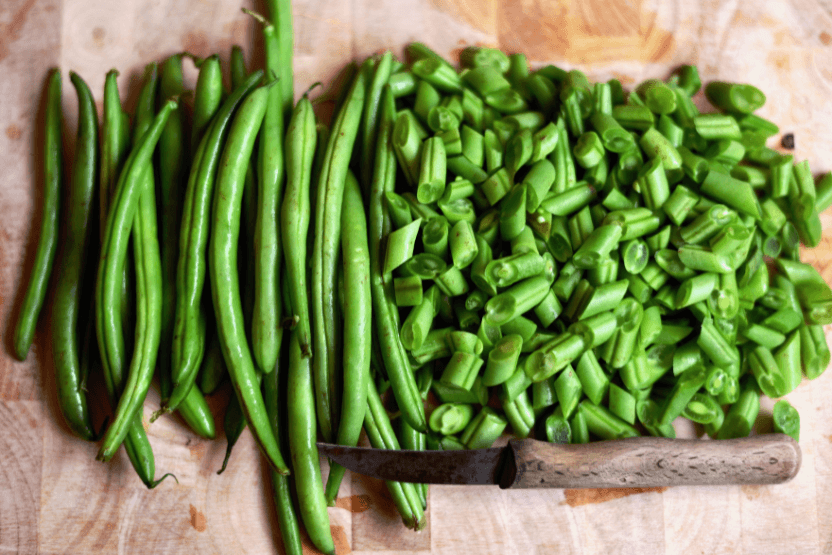
Beef and Green Beans is a great homemade foods option for cats with liver disease, as it contains high-quality protein and fiber. Here’s a detailed recipe on how to make this dish:
Ingredients:
- 1 pound of lean ground beef
- 1 cup of cooked green beans
Instructions:
- Cook the ground beef in a non-stick pan until it’s browned and fully cooked.
- Drain the excess fat and let the beef cool.
- Cook the green beans separately, either by boiling them or steaming them until they’re tender.
- Mix the cooked beef and green beans together in a bowl.
- Allow the mixture to cool down to room temperature before serving.
It’s important to note that you should avoid seasoning this dish with any salt or other seasonings as they may be harmful to your cat’s liver. Also, make sure to serve the food in small portions and observe your cat’s reaction to it to ensure that they’re able to digest it properly.
It is important to make sure that the beef is cooked properly. Overcooked beef may be tough and difficult for cats to digest, so it is recommended to cook it until it is fully cooked and no longer pink, but not overcooked. This can help ensure that the cat can digest and absorb the nutrients from the beef without putting extra strain on their liver.
Chicken and Carrots
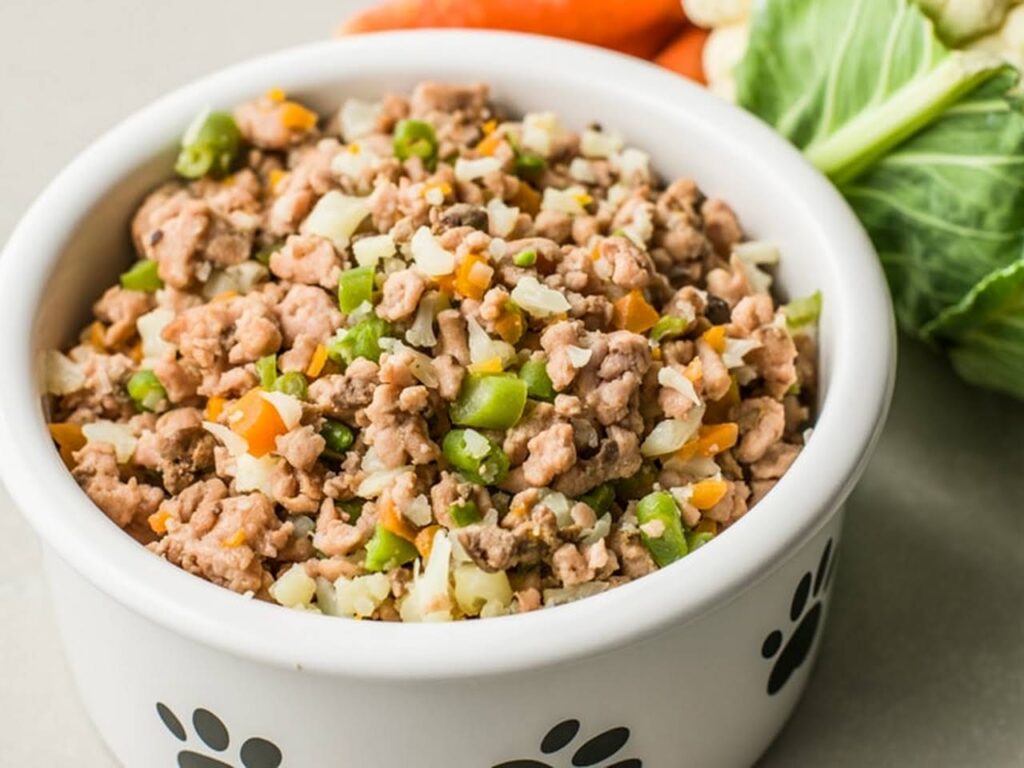
Chicken and Carrots recipe is a simple and nutritious meal that can help support your cat’s liver function. The ingredients used in this recipe are easy to find and provide a good balance of protein and vitamins.
Ingredients:
- 1 boneless chicken breast
- 1/2 cup of diced carrots
Instructions:
- Begin by boiling the boneless chicken breast in a pot of water until it is fully cooked. It should take about 15-20 minutes.
- While the chicken is cooking, peel and dice the carrots into small pieces and boil them in a separate pot until they are tender. It should take about 10-15 minutes.
- Once the chicken is cooked, remove it from the pot and let it cool for a few minutes. Then, use a fork to shred the chicken into small pieces.
- Mix the cooked, shredded chicken with the cooked carrots.
- Let the mixture cool down before serving it to your cat.
Make sure the chicken is fully cooked before serving it to your cat. The carrots should also be soft and easy to chew. You can adjust the amount of chicken and carrots according to your cat’s size and nutritional needs.
Pumpkin and Turkey
The Pumpkin and Turkey recipe is one of the best homemade foods for cats with liver disease. Pumpkin is a good source of fiber and can help improve digestion, while turkey is a lean protein that is easy to digest. Here are the ingredients and steps to make this recipe:
Ingredients:
- 1 pound of ground turkey
- 1/2 cup of canned pumpkin (not pumpkin pie filling)
Steps:
- In a skillet, cook the ground turkey over medium heat until browned.
- Drain the fat and let the turkey cool.
- In a mixing bowl, combine the cooked turkey with canned pumpkin.
- Mix well until all ingredients are evenly distributed.
- Serve the pumpkin and turkey mixture to your cat.
It’s important to note that while pumpkin can be beneficial for cats with liver disease, it should be given in moderation. Too much fiber can cause digestive issues and may worsen the symptoms of liver disease.
And that concludes the best homemade foods that you can make for cats with liver disease. If you are still having trouble deciding, or your cat is refusing to eat what you make, consult a professional asap.
